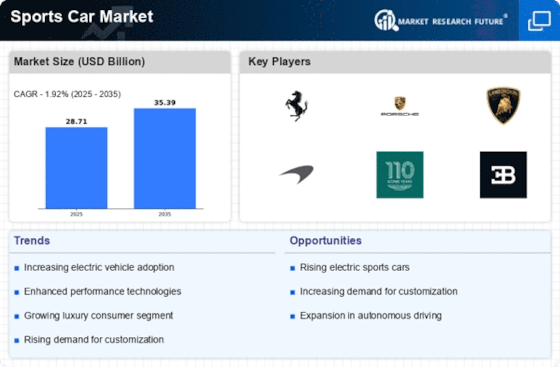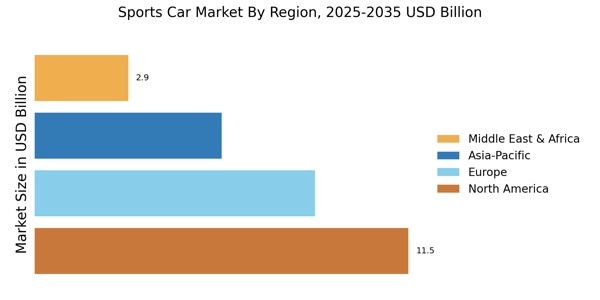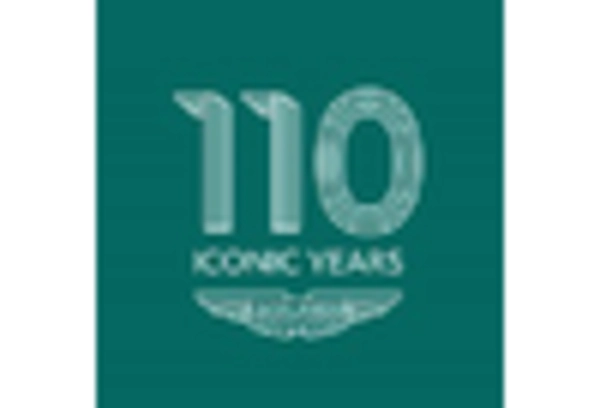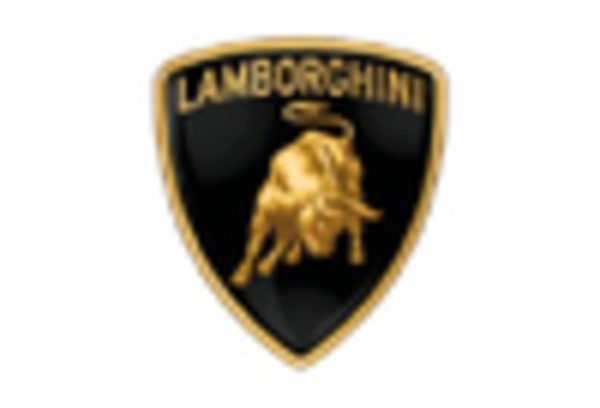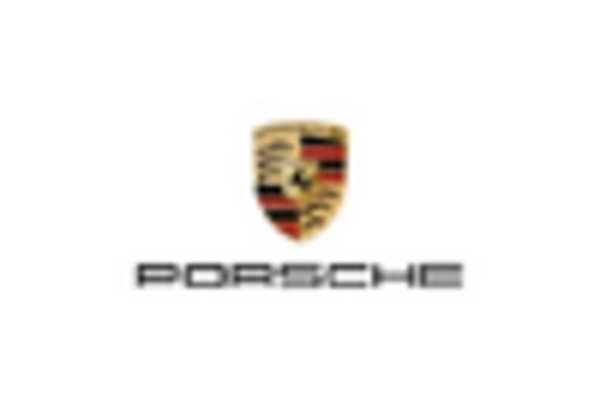Expansion of Luxury and Exotic Sports Car Segments
The Sports Car Market is experiencing an expansion in the luxury and exotic segments, driven by affluent consumers seeking exclusivity and high-performance vehicles. This trend is characterized by the introduction of limited-edition models and bespoke customization options, appealing to buyers who desire unique features and superior craftsmanship. Data indicates that the luxury sports car segment has grown by approximately 7% annually, reflecting a robust appetite for premium offerings. Additionally, the rise of social media and influencer marketing has amplified the visibility of luxury sports cars, attracting a younger demographic eager to invest in high-status vehicles. As manufacturers continue to innovate and cater to this market segment, the Sports Car Market is likely to see sustained growth in luxury and exotic offerings.
Growing Interest in Electric and Hybrid Sports Cars
The Sports Car Market is witnessing a notable shift towards electric and hybrid sports cars, driven by increasing environmental awareness and regulatory pressures. Consumers are becoming more conscious of their carbon footprint, leading to a rising demand for sustainable alternatives in the performance vehicle segment. Recent statistics suggest that electric sports cars are projected to account for over 20% of the sports car market by 2030. This transition is supported by advancements in battery technology, which have improved range and performance, making electric models more competitive with traditional gasoline-powered vehicles. As manufacturers invest in electric sports car development, the market is likely to see a diversification of offerings, catering to eco-conscious consumers while maintaining the exhilarating performance that defines the Sports Car Market.
Increasing Consumer Demand for Performance Vehicles
The Sports Car Market is currently experiencing a surge in consumer demand for high-performance vehicles. This trend is driven by a growing interest in speed, agility, and driving experience among automotive enthusiasts. According to recent data, the performance vehicle segment has seen a compound annual growth rate of approximately 5% over the past few years. This increase is attributed to the rising disposable income of consumers, allowing them to invest in luxury and performance-oriented cars. Furthermore, the proliferation of automotive events and motorsport activities has heightened awareness and interest in sports cars, further propelling the market forward. As manufacturers respond to this demand with innovative designs and enhanced performance features, the Sports Car Market is poised for continued growth.
Technological Advancements in Automotive Engineering
Technological advancements play a pivotal role in shaping the Sports Car Market. Innovations in automotive engineering, such as lightweight materials, advanced aerodynamics, and high-performance engines, have significantly enhanced the capabilities of sports cars. For instance, the integration of turbocharging and hybrid technologies has allowed manufacturers to produce vehicles that deliver exceptional power while maintaining fuel efficiency. Data indicates that the adoption of these technologies has led to a 10% increase in fuel efficiency in some models, appealing to environmentally conscious consumers. Additionally, the incorporation of smart technologies, such as adaptive cruise control and advanced infotainment systems, has transformed the driving experience, making sports cars more appealing to a broader audience. As these advancements continue to evolve, they are likely to further influence consumer preferences within the Sports Car Market.
Increased Investment in Motorsports and Racing Events
The Sports Car Market is significantly influenced by increased investment in motorsports and racing events, which serve as a platform for showcasing high-performance vehicles. The growing popularity of motorsports, including Formula 1 and endurance racing, has led to heightened consumer interest in sports cars. Recent data shows that attendance at major racing events has increased by 15% over the past few years, indicating a robust engagement with the motorsport community. This engagement not only fosters brand loyalty but also drives sales as consumers aspire to own vehicles that embody the performance and prestige seen on the racetrack. As manufacturers leverage these events for marketing and product development, the Sports Car Market is likely to benefit from this symbiotic relationship between motorsports and consumer demand.


